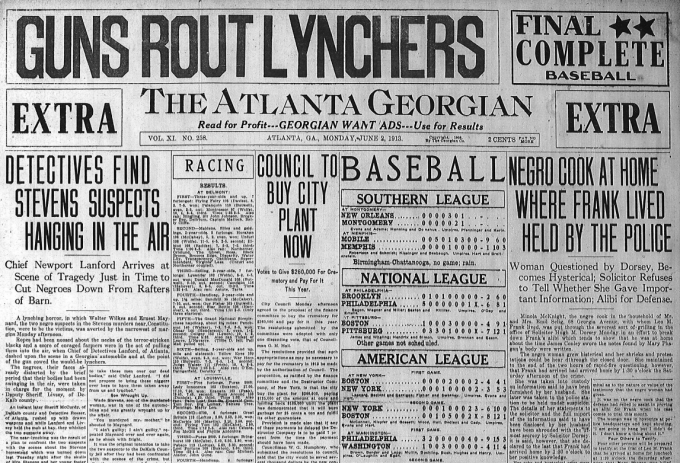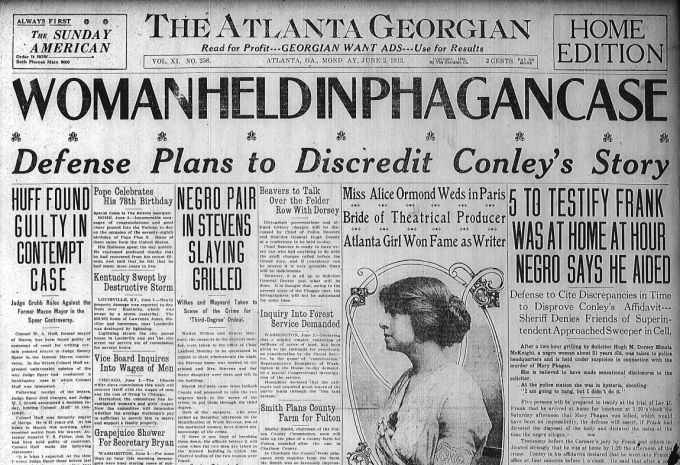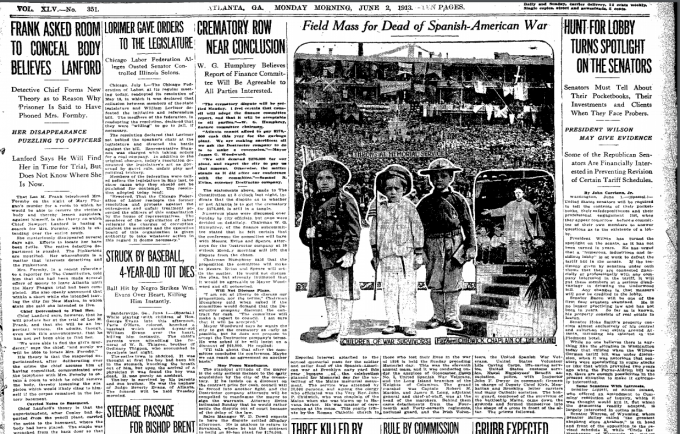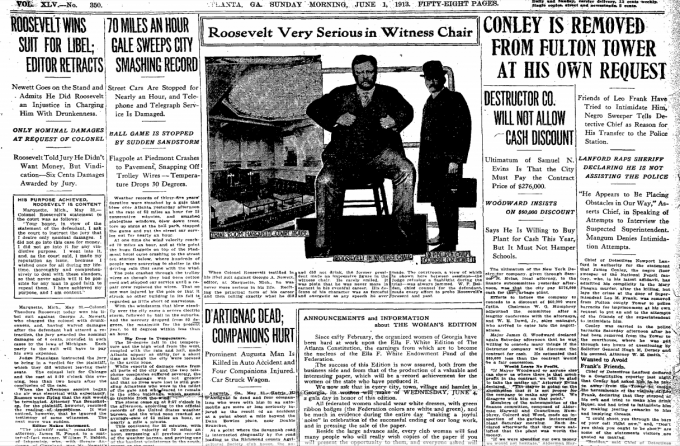 Another in our series of new transcriptions of contemporary articles on the Leo Frank case.
Another in our series of new transcriptions of contemporary articles on the Leo Frank case.
The Atlanta Journal
Sunday, July 20, 1913
SOLICITOR SCORED FOR HIS ATTITUDE IN CONLEY’S CASE
Rosser and Arnold Charge Dorsey Seeks to Convict Frank, Guilty or Innocent, Out of Professional Pride
“SHUTTING EYES TO TRUTH, DORSEY PROTECTS NEGRO”
Attorneys Intimate That Dorsey Fears to Let Truth Be Known – Attitude Throughout Case Is Criticised
The attitude of Solicitor General Hugh M. Dorsey throughout the Phagan investigation, and especially in his attempt to block a grand jury indictment of Jim Conley, is scored in an interview made public by Luther Z. Rosser and Reuben R. Arnold, counsel for Leo M. Frank.
“The solicitor is seeking to convict Frank innocent or guilty, in order to gratify his professional pride,” Frank’s attorneys say.
In the course of the intetrview [sic] the two famous attorneys, who have been engaged to defend the man accused of the murder of Mary Phagan, charge that the solicitor is protecting the negro Conley.
Mr. Dorsey is severely criticised not only for his avowed intention of trying to block the indictment of Conley by the grand jury Monday, but because he prevented the last grand jury, the one, which indicted Frank, from acting on Conley’s case, and because he did not place before the last grand jury any of Conley[‘s] confessions.
Solicitor Dorsey is geeting [sic] his legal and constitutional functions in seeking to control the action of the grand judy [sic],” Attorneys Rosser and Arnold declare.
Despite the criticism of his attitude, there is little doubt that Solicitor Dorsey will be present Monday, when the grand jury takes up the consideration of the Conley case. In fact the solicitor’s presence has been requested by W.D. Beattie, the foreman of the grand jury, who called the meeting.
Solicitor Dorsey is still confident that the grand jury will not indict Conley.
There is little doubt that there will be a quorum present, when the grand jury meeting is called Monday, for Deputy Sheriff Plennie Minor has found that 19 of the 20 grand jurors empanneled [sic] are in the city, and they have promised to be present Monday. It takes 18 grand jurors to act on a bill of indictment. The statement of Mr. Rosser and Mr. Arnold, scoring the solicitor is as follows:
STATEMENT IN FULL.

 Another in
Another in  Another in
Another in  Another in
Another in  Another in
Another in  Another in
Another in  Another in
Another in 


